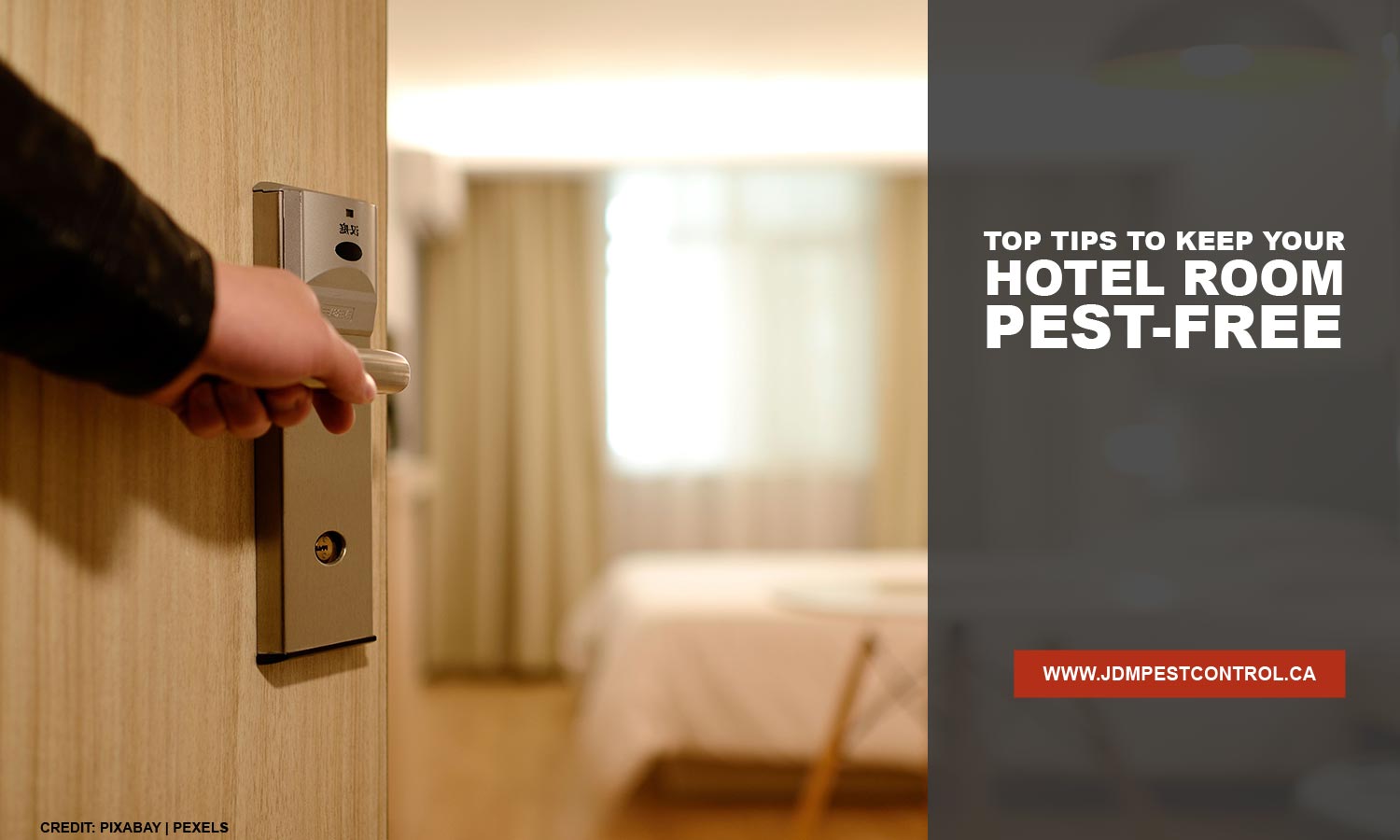If you own or manage a hotel, your main goal is always to ensure your guests get the best possible experience. Managers and staff almost always leave no stone unturned to make it happen. A setback during a guest’s stay at your hotel can quickly affect your reputation in the hospitality industry. Few things can setback your hotel’s reputation than a pest infestation. No one wants to stay in a place where they have to deal with bed bugs, and you can’t blame them.
Pests are difficult to avoid especially when you have a business that offers them an abundant source of food and shelter. Especially during this pandemic where hotels have fewer occupancy than normal, pests have free rein over the building.
To keep your establishment in tip-top shape, here are some tips for a pest-free hotel.
Tips to Keep Your Hotel Room Pest-Free
A single pest incident can already be a public relations nightmare and may be damaging to your brand. Besides that, pest treatment can be costly. You should take proactive steps to keep this from happening in the first place.
-
- Know Which Pests You May Be Dealing With
By nature, hotels have to deal with extremely high levels of foot traffic — people coming in and out of the premises, food and material suppliers, and even staff members — which can unknowingly carry the pests into your building. They have plenty of opportunities to access the hotel. The first step you need to take is to know which creepy crawlies pose a threat to your establishment.- Bed Bugs
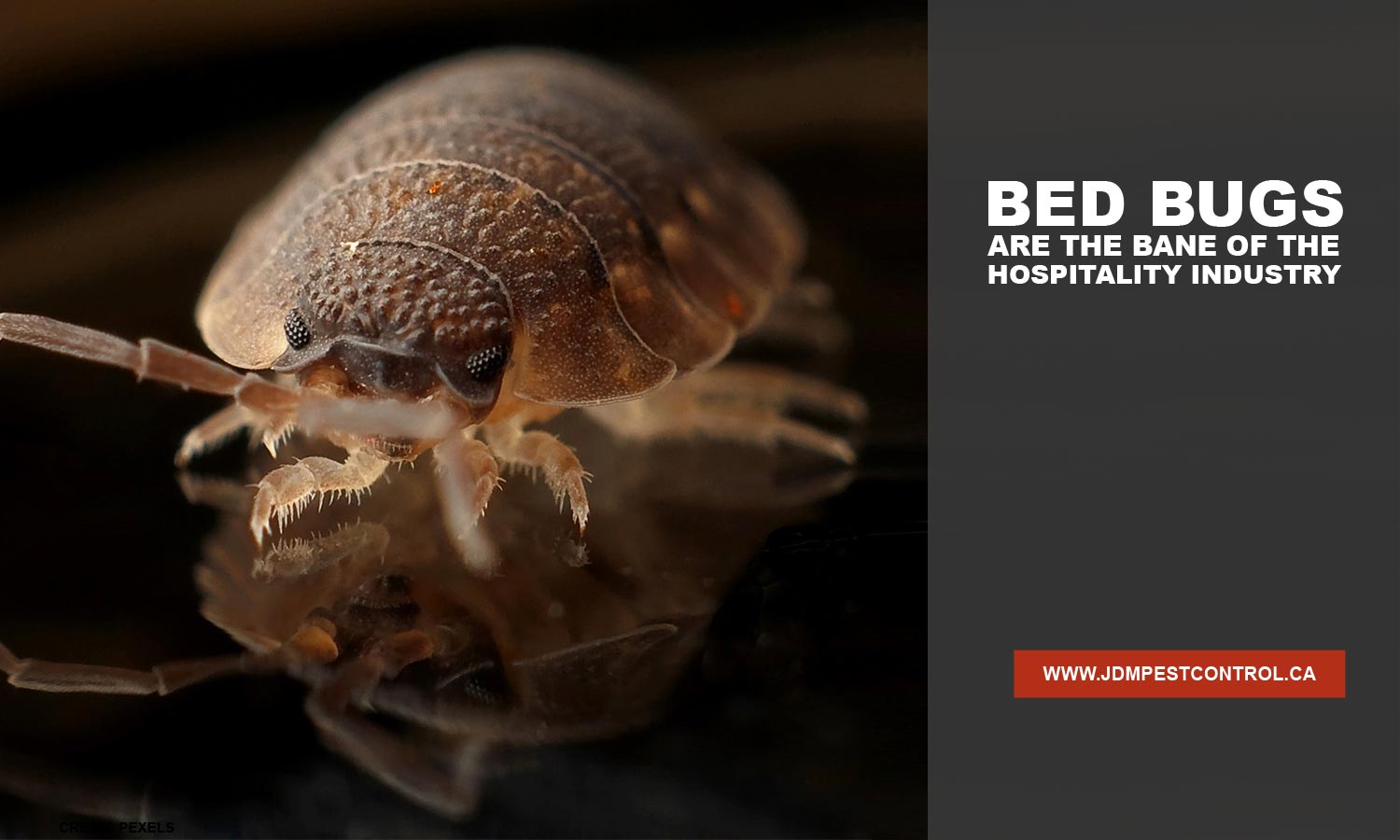
Bed bugs are arguably the worst pest the hospitality industry has to deal with. A Bed Bug Registry lists which houses, hotels, and apartments have had bed bug infestations. Bed bugs are difficult to spot, harder to remove, and are so tenacious hotels sometimes need to disinfect entire floors if a single room has been infested. They can easily make their way to your hotel by riding on luggage and clothing.
- Cockroaches
Cockroaches are another pest that can enter the hotel through various entry points. They can slip in via luggage, clothing, food supplies, rubbish. They can even make their way through cracks and pipes. To keep your hotel free of cockroaches requires regular inspections and cleaning. You also need to follow a strict protocol on how food should be prepared, stored, and disposed of. - Rodents
Rodents, like mice and rats, are a year-round problem for many hotel owners. likely to enter hotels when looking for a constant supply of food. They nest close to food sources, so you must keep the hotel kitchen and storage areas clean.
Rodents carry a range of diseases and may contaminate the food and preparation areas. They can also damage fixtures, equipment, and wirings. No one likes a rat running across their room, and for sure, not in a hotel.
- Ants
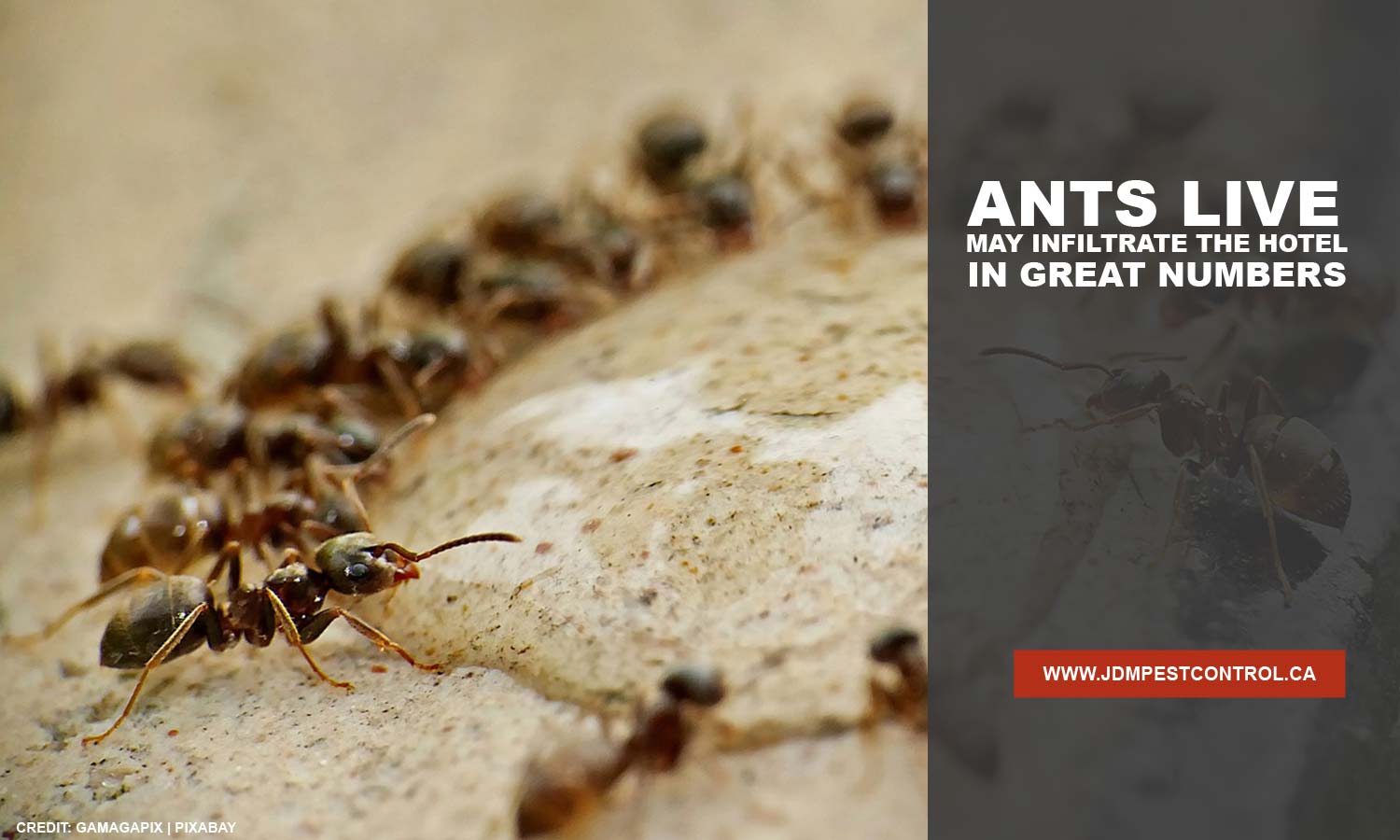
Ants are troublesome pests. They can get on your food, and their bite can be excruciating. Ants are particularly more active at the onset of warm weather in spring and summer. They also stay in colonies, so when you start noticing a trail of ants in your establishment, you need to act quickly. Set up traps, conduct preventive measures, and work with a pest specialist before it gets worse.
- Fleas
Fleas can wreak havoc in your business. Not only do they have irritating bites, but they are also potential health risks. Fleas can carry a variety of bacteria, viruses, and parasites. They find shelter in human clothing or sleeping areas. That is why thorough cleaning and vacuuming of the area is recommended.
-
Inspect Your Hotel Room Design
Not many may be aware, but the layout and design choices you made for your rooms can be the reason why pests find their way into the hotel. Your choice of bed platforms, linens, and furniture, for example, may create an inviting environment for them. Likewise, if you have secured fixtures on the wall with nails, those punctures may serve as shelter for bugs and their eggs. Fan flow, utility lines, and doors and windows all serve as potential avenues of pest infiltration.
-
Food and Waste Control

The main reasons why pests enter buildings are for food, water, and shelter. Hotels are not all about rooms; many also provide food and other amenities. This means that hotels produce enough food and waste to attract pests every day. When hotel guests leave their dirty dishes, food wrappers, and crumbs out in the open, opportunistic pests will be more than happy to feast on it.
It is no understatement how paramount food safety is in the hospitality business. To guarantee this, manage carefully how the food is delivered, stored, and prepared. Make sure to use fresh ingredients, and get rid of them if they start getting old. Furthermore, collect the dirty dishes and wash them immediately. Keep all leftovers and waste in secure and tight-lid containers.
-
Clean Up the Laundry
If there’s any place apart from the kitchen that needs full attention, it would be the laundry area. It may come as a surprise but the laundry room could be one of the dirtiest places in the hotel. Lint, dust, and dirt can accumulate over time without anyone noticing. Moisture is another attractive factor for pests to seek shelter in the area. This is apart from the fact that pests can reside and be transported in the linens, so the laundry room can harbour some of them.
Sweep, mop, and vacuum your laundry room as frequently as possible. Check your machines for any damage and leakage to prevent open water sources. Consider changing your old or worn-out equipment to avoid any issues and pests in the long run.
-
Train Hotel Staff
- Know Which Pests You May Be Dealing With
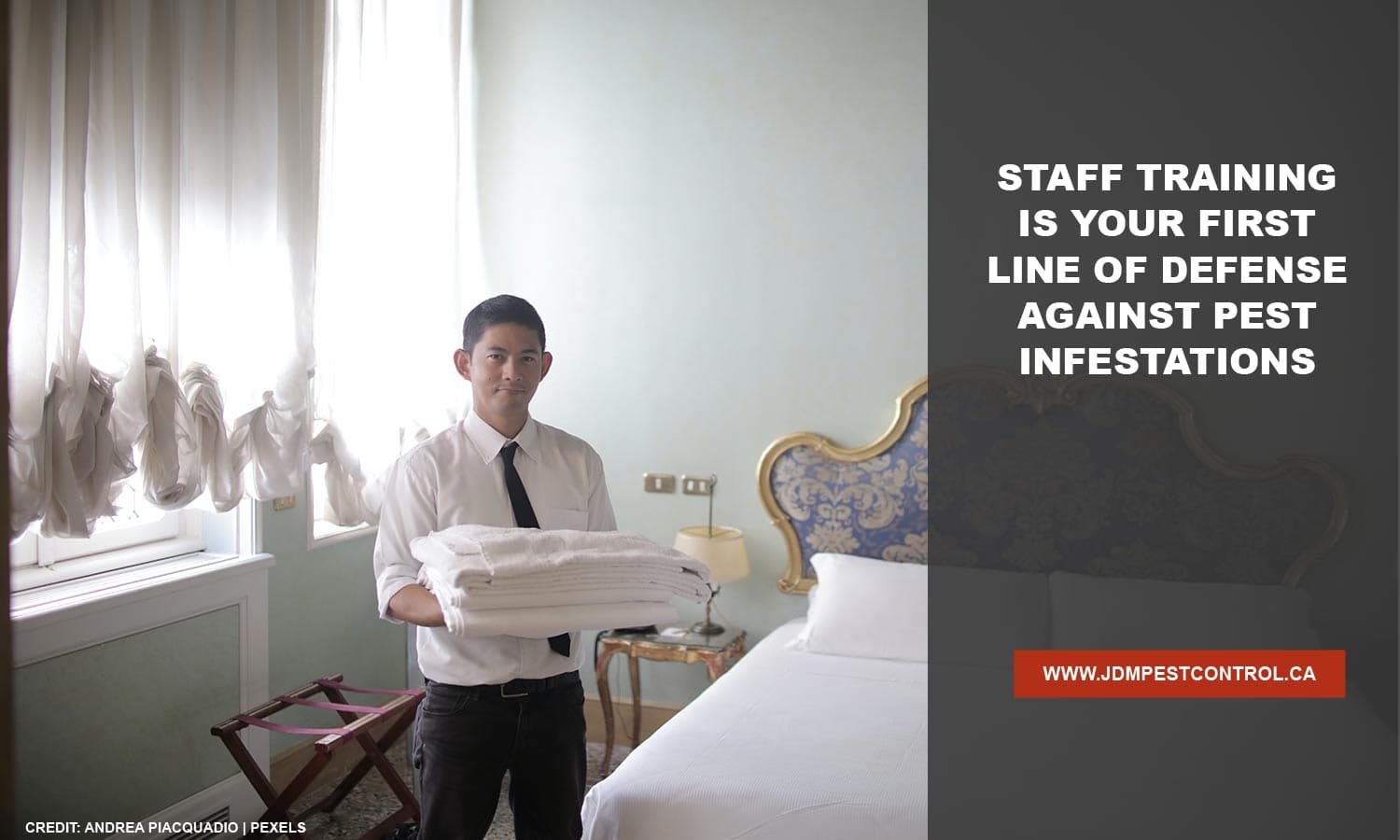
When it comes to preventing pest infestation, your first line of defence will always be your staff and co-workers. If everyone in the building knows how to identify the warning signs of infestation and deal with these threats, dealing with them can be achieved efficiently. Train hotel staff how to look for signs while they clean the rooms or prepare the food. They should also be aware of any protocols in place so that they know exactly what to do when it happens.
-
-
Put Preventive Measures in Place
Prevention is better than cure, as the saying goes. Rather than being reactive to the problem, the hotel will be in the best shape if preventive measures are conducted beforehand. Upon knowing the threats and identifying possible vulnerabilities, you have to act on them swiftly. Garbage attracts pests, right? So, it is only logical to place dumpsters and garbage cans as far from the hotel as possible. If you see any cracks and small openings, you need to seal them off before they become gateways for rodents into the main building.
Not only will preventive measures keep your business ready in worst-case scenarios but it can also help lower hotel treatment costs.
-
Create an Action Plan
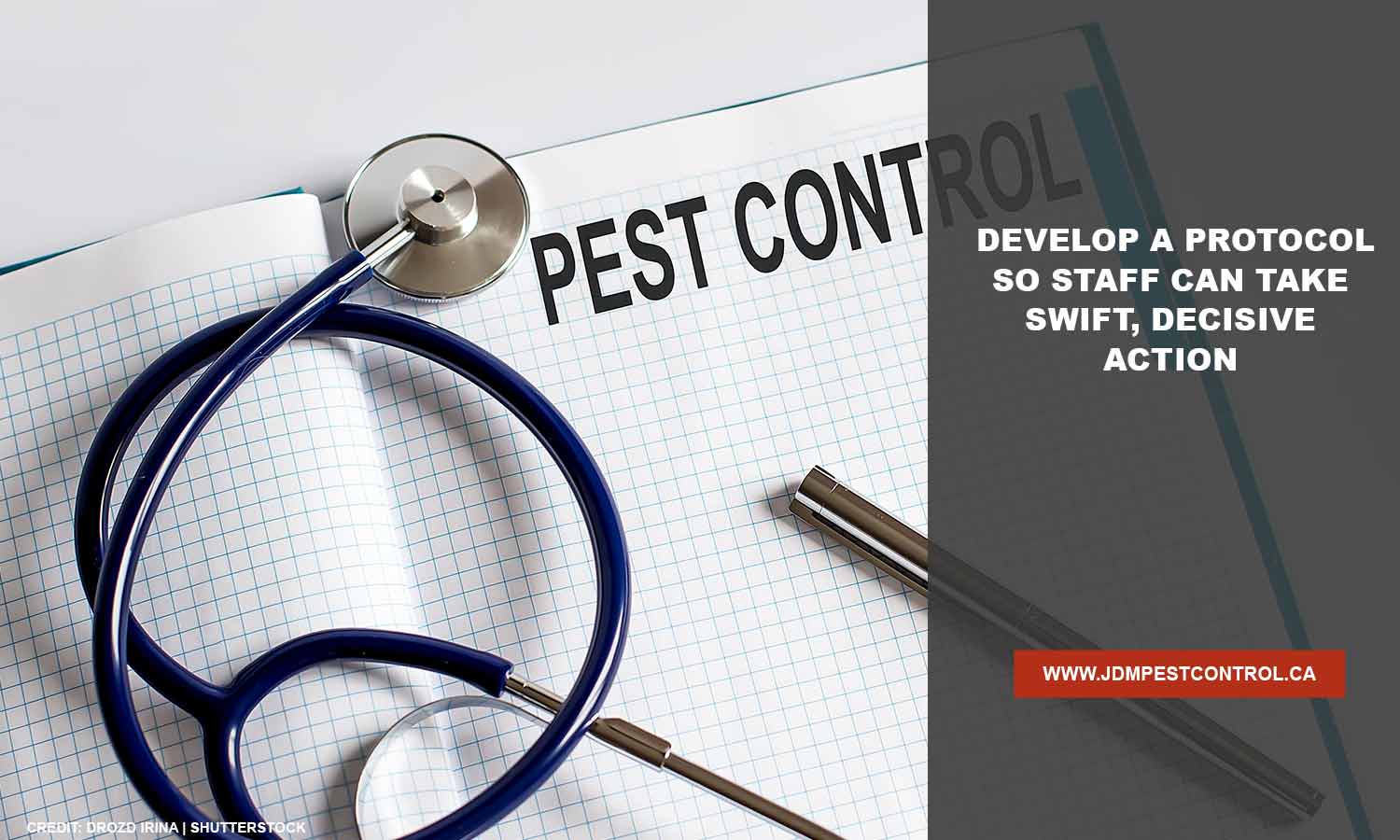
An action plan can show that your hotel is serious about keeping your guests and employees safe at all times. It is also one of the most important tips for a pest-free hotel.
Drafting a protocol for pest infestations allows your staff to know what steps to take to handle the incident correctly. It can also make pest management faster and easier. Finally, it can protect your hotel’s reputation when a guest uncovers an infestation. An action plan can prove that your business exercise due diligence and preparedness under these circumstances.
-
